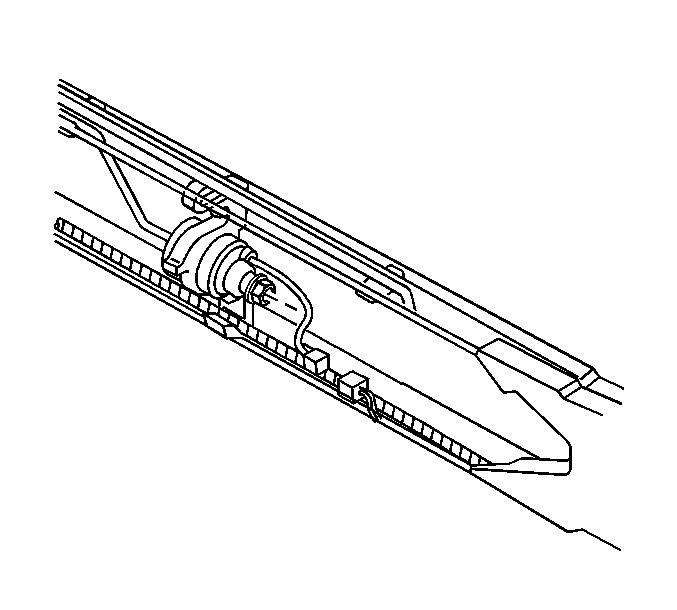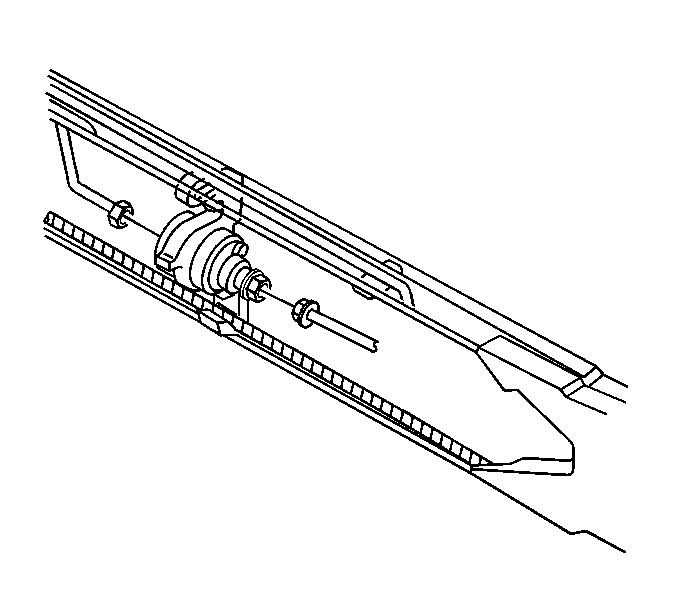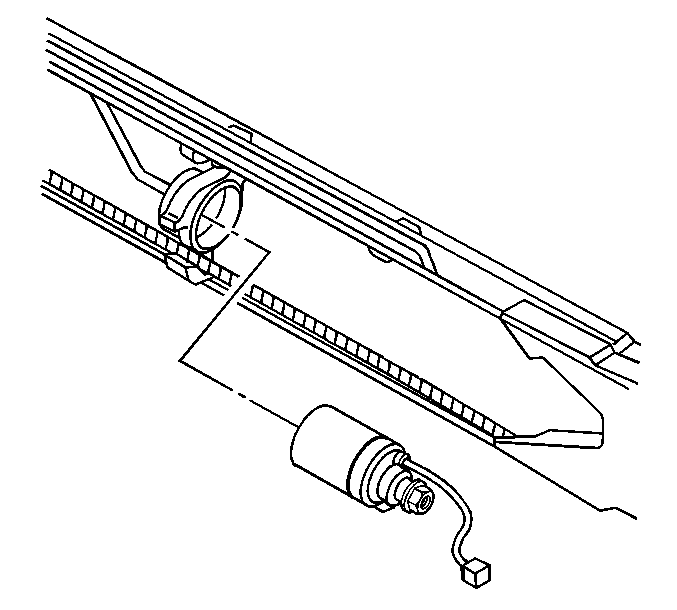Removal Procedure
- Disconnect the negative battery cables.
- Loosen the filler caps in order to relieve the tank pressure.
- Raise the vehicle.
- Disconnect the electrical connector.
- Clean both of the fuel pipe connections and the surrounding areas at the fuel pump before disconnecting in order to avoid possible contamination of the fuel system.
- Remove both of the fuel pipes from the fuel pump.
- Slide the fuel lift pump out of the bracket.
Caution: Unless directed otherwise, the ignition and start switch must be in the OFF or LOCK position, and all electrical loads must be OFF before servicing any electrical component. Disconnect the negative battery cable to prevent an electrical spark should a tool or equipment come in contact with an exposed electrical terminal. Failure to follow these precautions may result in personal injury and/or damage to the vehicle or its components.
Caution: To avoid any vehicle damage, serious personal injury or death when major components are removed from the vehicle and the vehicle is supported by a hoist, support the vehicle with jack stands at the opposite end from which the components are being removed and strap the vehicle to the hoist.

Caution : To reduce the risk of fire and personal injury that may result from a fuel leak, always replace O-ring seals exposed during component services.


Installation Procedure
- Install the new fuel pipe O-rings.
- Position the new pump in the pump bracket.
- Install the fuel feed pipe and the suction pipe to the fuel pump.
- Connect the harness connector.
- Lower the vehicle.
- Connect the negative battery cables.
- Tighten the filler caps.
- Bleed the air from the system. Refer to Fuel Feed Pipe and Return Pipe Purging .
- Start the engine.
- Check for any leaks.


Notice: Use the correct fastener in the correct location. Replacement fasteners must be the correct part number for that application. Fasteners requiring replacement or fasteners requiring the use of thread locking compound or sealant are identified in the service procedure. Do not use paints, lubricants, or corrosion inhibitors on fasteners or fastener joint surfaces unless specified. These coatings affect fastener torque and joint clamping force and may damage the fastener. Use the correct tightening sequence and specifications when installing fasteners in order to avoid damage to parts and systems.
Tighten
Use the backup wrench in order to prevent the pump from turning. Tighten
fittings to 30 N·m (22 lb ft).

